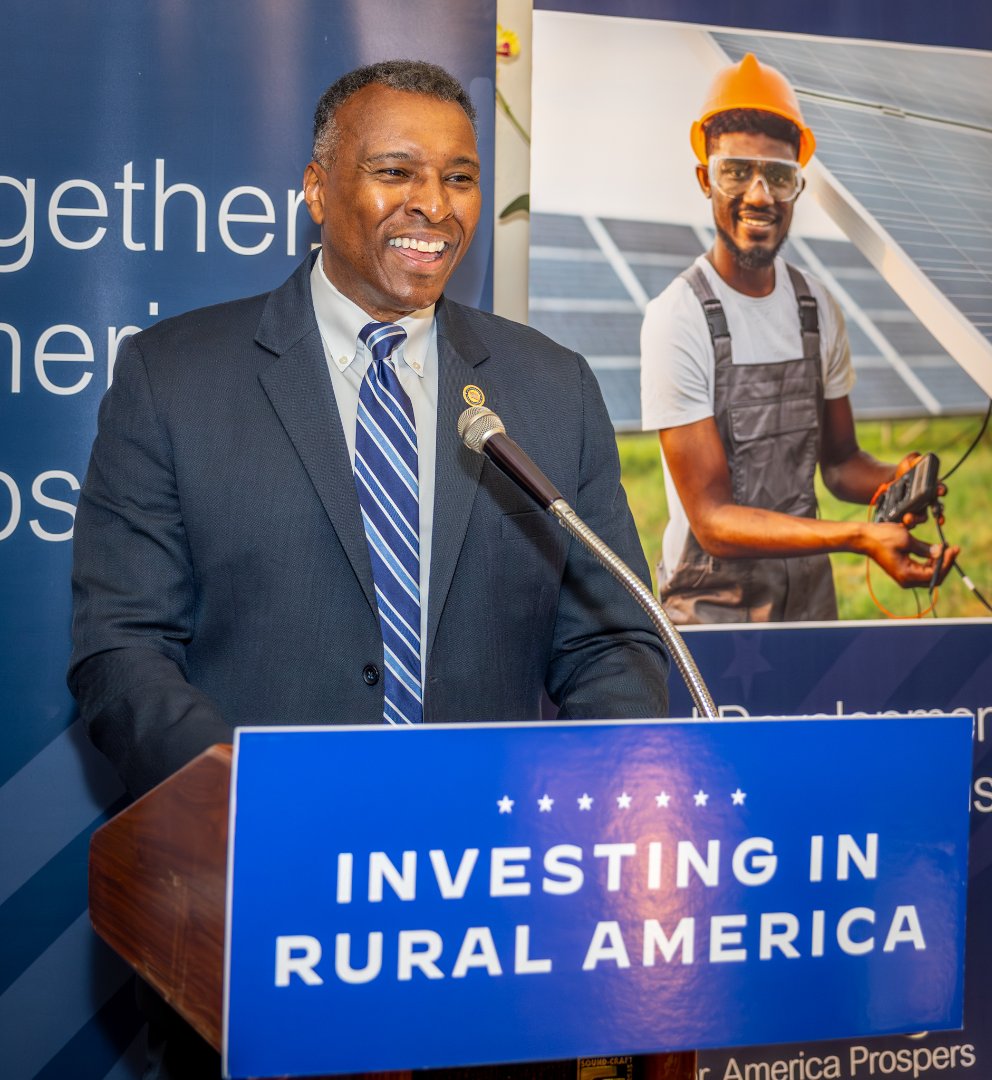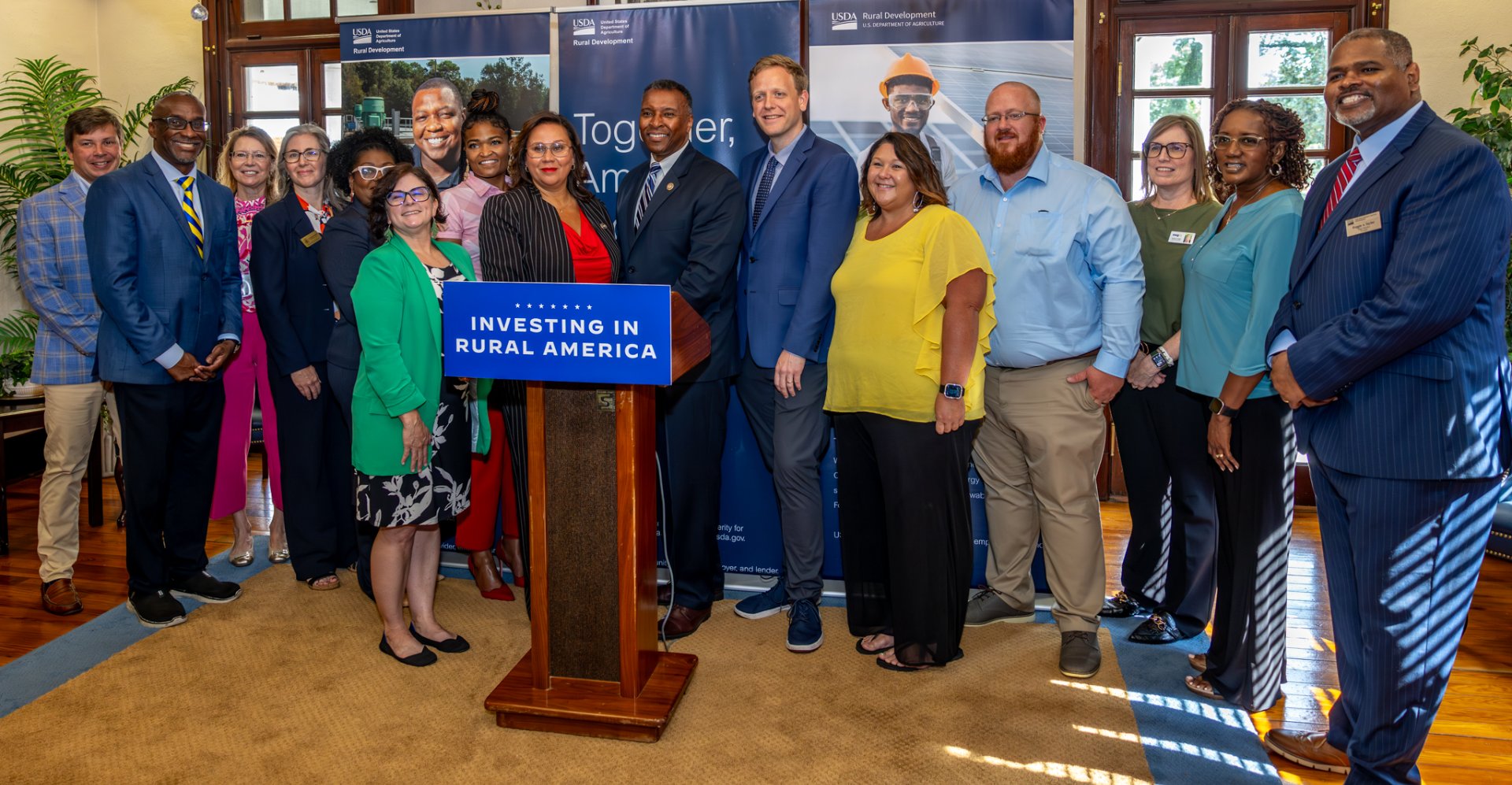Fort Valley State University (FVSU) recently welcomed guests to the Agricultural Technology Conference Center for a special announcement by Dr. Basil Gooden, U.S. Department of Agriculture (USDA) Under Secretary for Rural Development. He revealed a $49 million additional investment in Rural Partners Network (RPN) communities.
This gathering kicked off the Georgia RPN Federal Partner Forum, where more than 120 community leaders networked to build sustainable economic development capacity in rural Georgia.
The goal is to help build collaboration, capacity and relationships by connecting the Georgia Community Networks with targeted federal and civic partners and offer peer-to-peer learning opportunities on various topics. This includes housing, access to health care and food security services, preparing applications for federal assistance, maximizing federal resources for the local economy, and community economic development, infrastructure and public safety.
“The Biden-Harris Administration has fought to win unprecedented, once in a generation investments in rural communities, and the Rural Partners Network gets them to the people who need them most,” Gooden said. “These latest investments will help ensure every community here in Georgia and across this country has clean water and energy, good jobs and a prosperous future.”
The RPN is an all-of-government program that helps rural communities find resources and funding to create jobs, build infrastructure and support long-term economic stability on their own terms. Georgia RPN currently is active in three Community Networks: The Southwest Georgia Community Network, the Ben Hill County, Fitzgerald Community Network, and the Emanuel County, City of Twin City Community Network.
During the forum, Dr. Keith Howard, dean of FVSU’s College of Agriculture, Family Sciences and Technology, welcomed leaders and expressed there is strength in numbers when working together to impact Georgia communities. He noted some of the major projects by FVSU’s Cooperative Extension that will help with providing accessibility to rural communities such as through the Mobile Information Technology Center, a high-tech computer classroom housed in a 72-foot semi-trailer.
Furthermore, Georgia community leaders shared successes and challenges. They expressed the value in seeking opportunities to build relationships and tell their story.

Gooden said the $49 million investment will help provide rural communities with access to capital and resources. According to a USDA Rural Development news release, projects announced during the meeting are Rural Energy for America Program investments to three agricultural producers located in the RPN.
Businesses are receiving grants to transition to clean solar power and save on energy costs. Boston Gin Company in Thomas County is receiving a $262,625 grant to install solar technology that will save the cotton gin company more than $34,000 a year and provide enough energy to power 37 homes. Helical Holdings LLC in Baker County is receiving a $942,623 grant for solar technology that will save the company more than $92,000 a year and generate enough energy to power 215 homes. One family farm is receiving a $457,500 grant to buy a new replacement grain dryer that will save them more than $27,000 a year.
This year marks two years since the Biden-Harris Administration launched RPN to ensure people in historically underserved communities receive their fair share of funding from federal agencies. Since its launch, USDA has provided more than $1 billion to support approximately 4,700 economic development projects in RPN communities. Many of these projects would not have been possible without the collaboration between community networks and on-the-ground, federal government staff through RPN.

